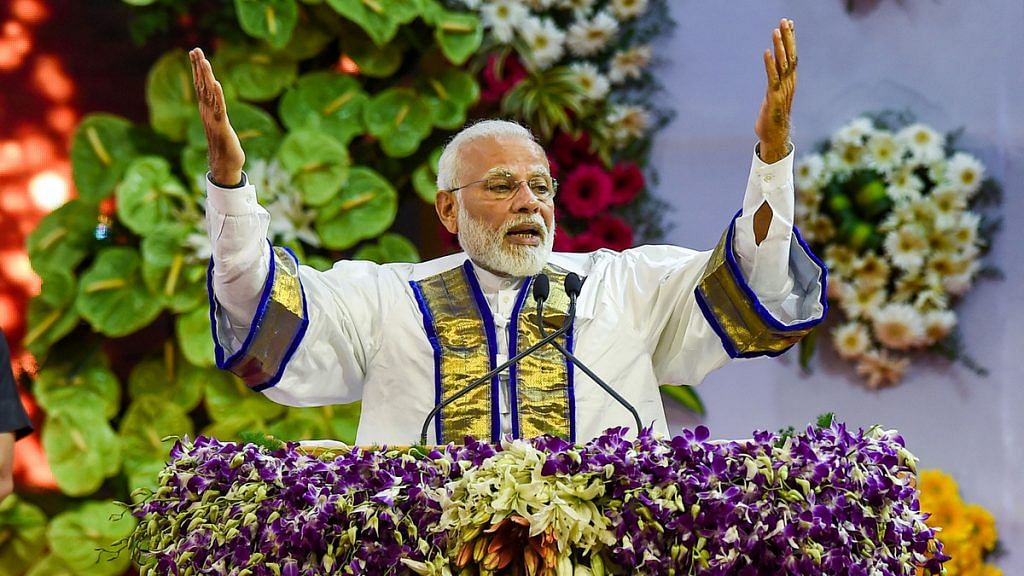It comes as no surprise that in light of the disruption caused by the Covid-19 pandemic, there has been a loud clamour to further postpone the JEE entrance exam. Given the daily rise in the number of Covid cases, there seems to be a pressing need to defer the date of the examination.
The main reason being advanced against deferment is that any further delay in conducting the JEE Main will put the Indian institutes of Technology (IITs) at a great disadvantage because they will be unable to handle the increased number of students when the fresh batch takes admission in or around April 2021. If added syllabus and more students are the worries, then the solution to a similar problem has been provided by Delhi University and Allahabad University in the past.
During the academic year 1972-73 and again in 1982-83, the University of Delhi witnessed major disruptions in its functioning with prolonged shutdowns of teaching that lasted for several months. Yet, through some adroit management, the university did not have to prolong or extend its academic calendar in any significant manner. Perhaps the decision makers dealing with the JEE could have taken a leaf from the pages of Delhi University’s past.
Also read: Modi is teaching NEET-JEE aspirants what happens when a government becomes too strong
Delhi University did it
The University of Delhi made use of the extra days available during the summer and winter breaks for teaching and also pruned with great care and thought the syllabus. Such measures, if undertaken by the IITs in a collective and coordinated fashion, are likely to solve the issue of loss of teaching days and not cause a major overload on the students if they are compelled to attend classes in a slightly extended manner without too many breaks.
I have had discussions with some IIT colleagues across several IITs and I have yet to hear any major disagreement with what I am advocating here. So, what are the likely pitfalls of such a plan of action?
All that will likely happen is that the batches for the academic year 2021-22 shall have to be admitted a little behind the schedule but the delay won’t be much as compared to this year. More importantly, postponing the exam can avoid the doubling up of the student numbers. And the students who will be admitted for the academic session 2022-23 will face near negligible delays in the start of their sessions. Under all circumstances, the batches admitted in this session will exit on schedule at the end of their fourth and final year of study.
Also read: Only non-serious aspirants, Modi-baiters want JEE-NEET postponed: ex Kota student
Teaching extra
What about the proposed pruning of the academic content? Critics will point out the dangers of having IIT graduates with half-baked knowledge. Once again, I can vouch for this on the basis of discussions that I have had with friends in the IITs and also on the basis of the additional content we teach that it becomes counterproductive.
I have rarely met a student across the globe who has imbibed in the true sense more than a bare minimum of all the knowledge we throw at them at the undergraduate level. On the other hand, I strongly believe, based on years of learning and discussing with colleagues, that less is more in the context of imparting knowledge.
In any case, I am not advocating very severe or drastic reductions in the syllabus. All that is needed is a very well thought out programme of restructuring the content. This takes some hard work for a one-time effort. Once this redesigning has taken place, the execution is fairly straightforward.
Also read: My cousin Vikram hanged himself because of JEE pressure. September dates made it worse
Allahabad University’s success
There is a recorded instance of no doubling up of student numbers at the University of Allahabad where, in 1980, the situation was rather grim. The academic calendar of the university was three years behind schedule. But through dynamic and imaginative leadership, the university was able to conduct teaching through most of the vacation periods and it also indulged in very wise and gentle pruning of the content. At the end of three years, the calendar was back on track.
I am familiar with several students who graduated in mathematics and in other disciplines from that university during that phase and they have gone on to excel in their discipline.
Let me also add that I have often come across undergraduate students of the IITs who have consistently bemoaned the fact that they are overburdened with lessons and testing, leaving them with little time to really think and absorb. Perhaps a good beginning could be made through this excuse of the postponement of the JEE-NEET entrance exam date.
It must also be noted that the logistics of handling such deferment at any IIT is negligible compared with what universities such as Delhi University and Allahabad University may have faced. Actually, any of the IITs are no larger than an average Delhi University college and it has more than 70 colleges.
If the body responsible for the scheduling of the JEE pays heed to these simple points, perhaps some good could come out of it.
The author is the former vice-chancellor of the University of Delhi, a distinguished mathematician and an educationist. Views are personal.
